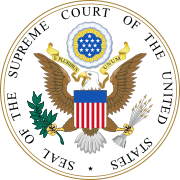This week, the United States Supreme Court found that the United States Department of Agriculture could not take a portion of California raising growers’ crop for a market stabilization program without paying just compensation under the Takings Clause of the United States Constitution.
The Hornes, California raising growers, were required to set aside a portion of their crop under the Department of Agriculture’s “marketing order”. The marketing order called for raisin growers to set aside as much as 47% of their crop in a particular year. These raisins would then be allocated to best stabilize the market. If they were sold, profits would be returned to the Hornes. But often, the raisins were just given away.
The Hornes argued that the reserve requirement constituted a taking of their property, for which the Constitution requires just compensation. The Ninth Circuit Court of Appeals agreed, but on the basis that it was an unconstitutional condition, where the government “imposed a condition (the reserve requirement) in exchange for a Government benefit (an orderly raisin market)”. This doctrine emerged out of land-use cases, where local governments have significant discretionary authority over authorizing permits and can condition the granting of a permit on certain conditions, so long as the conditions have a “rough proportionality” to and “essential nexus” with the impact of a proposed development. If they do not, the condition is an unconstitutional taking.
The application of this doctrine to the raisin reserve requirement feels a bit forced (as it did in the recent decision of the U.S. District Court for the Northern District of California, concerning enhanced relocation payments for tenants displaced by the Ellis Act). The allocation of personal property for a broader public purpose is a deprivation of rights, and this doctrine – mixed with some analytical gymnastics to find the existence of a discretionary benefit – allows recourse for the property owner.
The Supreme Court streamlined the takings analysis by expanding the application of “per se taking” jurisprudence to personal property: “Nothing in the text or history of the Takings Clause, or our precedents, suggests that the [per se] rule is any different when it comes to appropriation of personal property. The Government has a categorical duty to pay just compensation when it takes your car, just as when it takes your home.”

